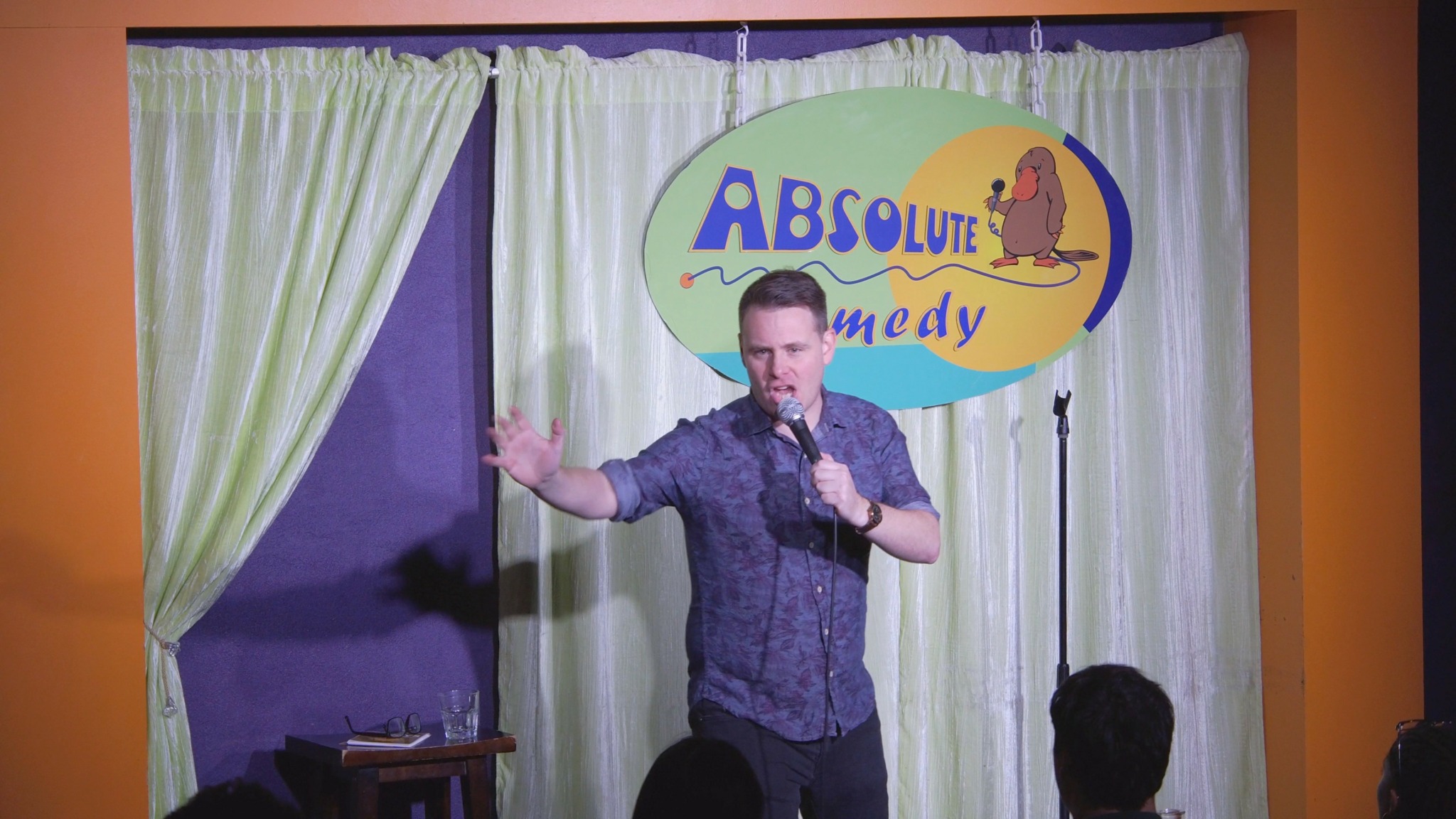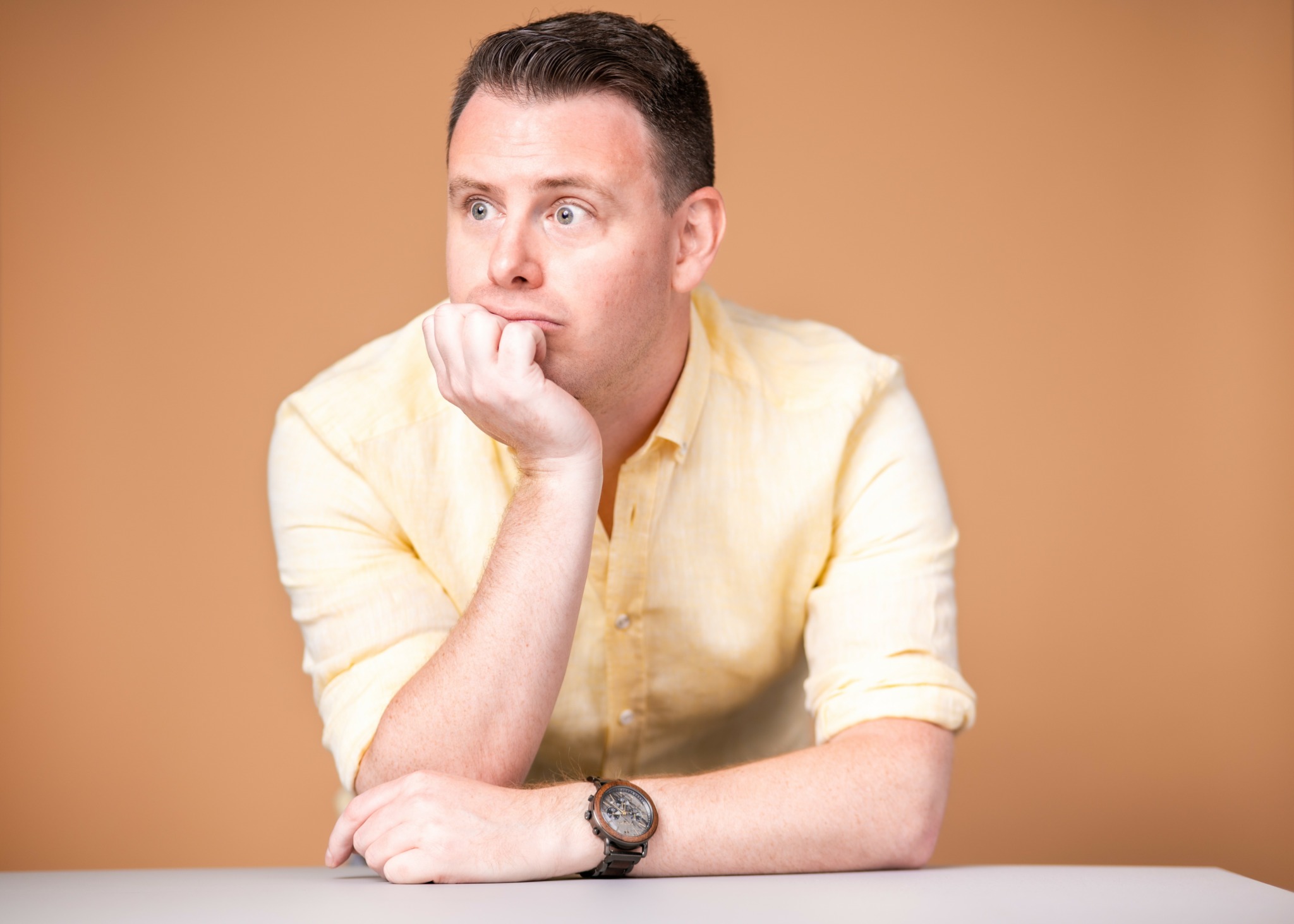We’re excited to introduce you to the always interesting and insightful Craig Fay. We hope you’ll enjoy our conversation with Craig below.
Craig, appreciate you joining us today. When did you first know you wanted to pursue a creative/artistic path professionally?
I was in University studying to become a Mechanical Engineer. It was the summer before my final year of school and I had gotten a job working in the office at a utility company. The job was pretty much exactly what I’d be doing after I graduated.
Sitting in that quiet, boring cubicle I had to pick my courses for the upcoming year. They all had names likes “Fluid Dynamics III”, “Thermodynamics II”, “Principles of Mechanical Design IV” – basically all sequels to courses I hadn’t enjoyed taking the first time. Then I remembered that back in high school a friend of mine had mentioned that there was a college that had a comedy course, and so I gave it a quick search. I knew full well that I’d never take that course. It wasn’t something that people really did and certainly not something someone like ME would ever do.
I looked at their curriculum and saw course names like “Stand-Up”, “Sketch Writing and Performance”, “Improv” and “Physical Comedy”. I was excited and interested with each description I read.
And that’s when I asked myself the profound and disturbing question “Why do I hate the things I’m studying to do for the rest of my life and why am I so excited about the things I’m never going to do?”
I didn’t have an answer for that right away but it was something I couldn’t shake and 8 months later when I finished my Engineering degree I headed to Humber College to take “Comedy Writing and Performance”. I told myself that I’d take the course so I would give performing comedy an honest shot. That I would be dedicated and committed to doing it for the two years I’d be in the program and then if it didn’t work out I’d know.
Those two years have now turned into 18. I’m still performing, still creating and now call stand-up comedy my full time job.
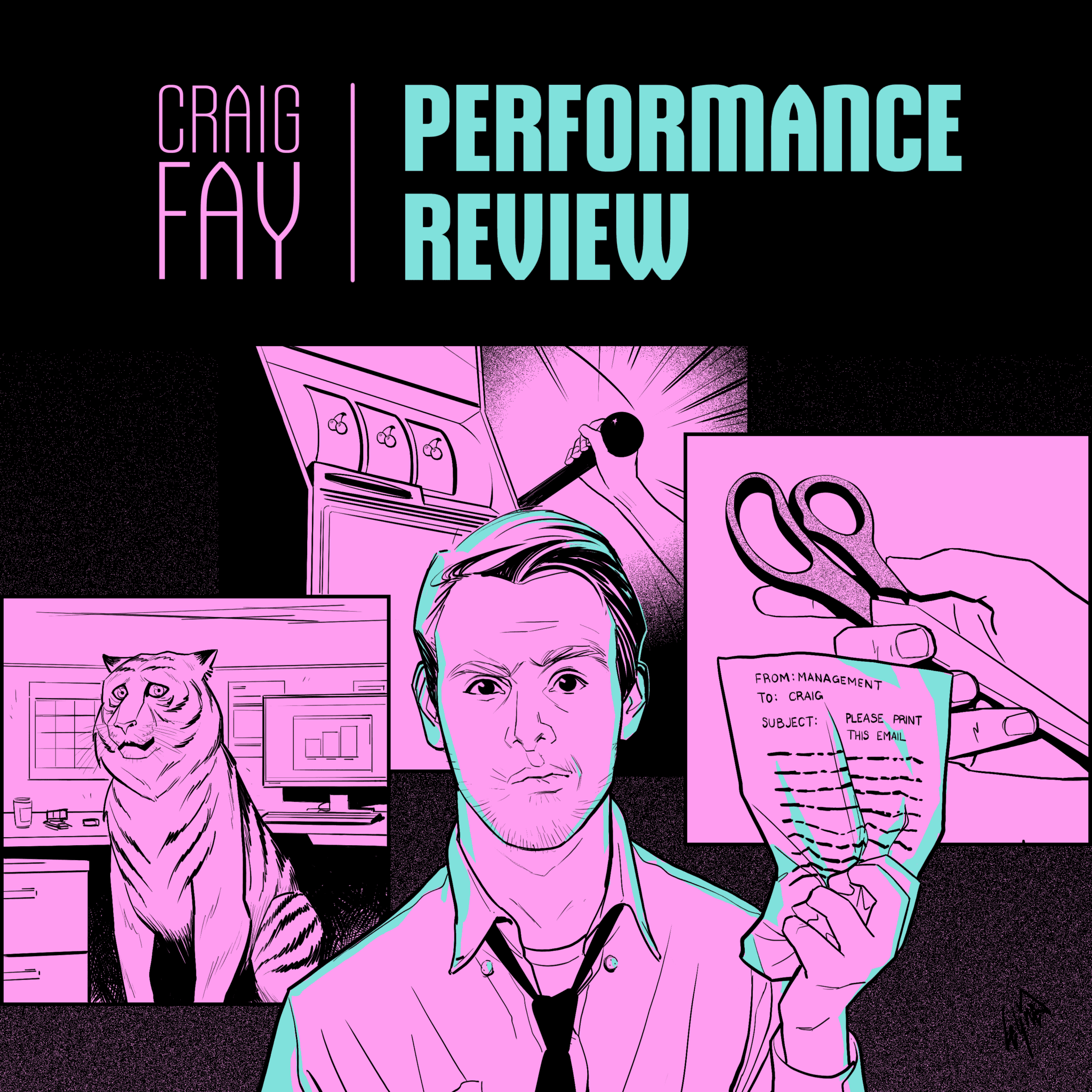
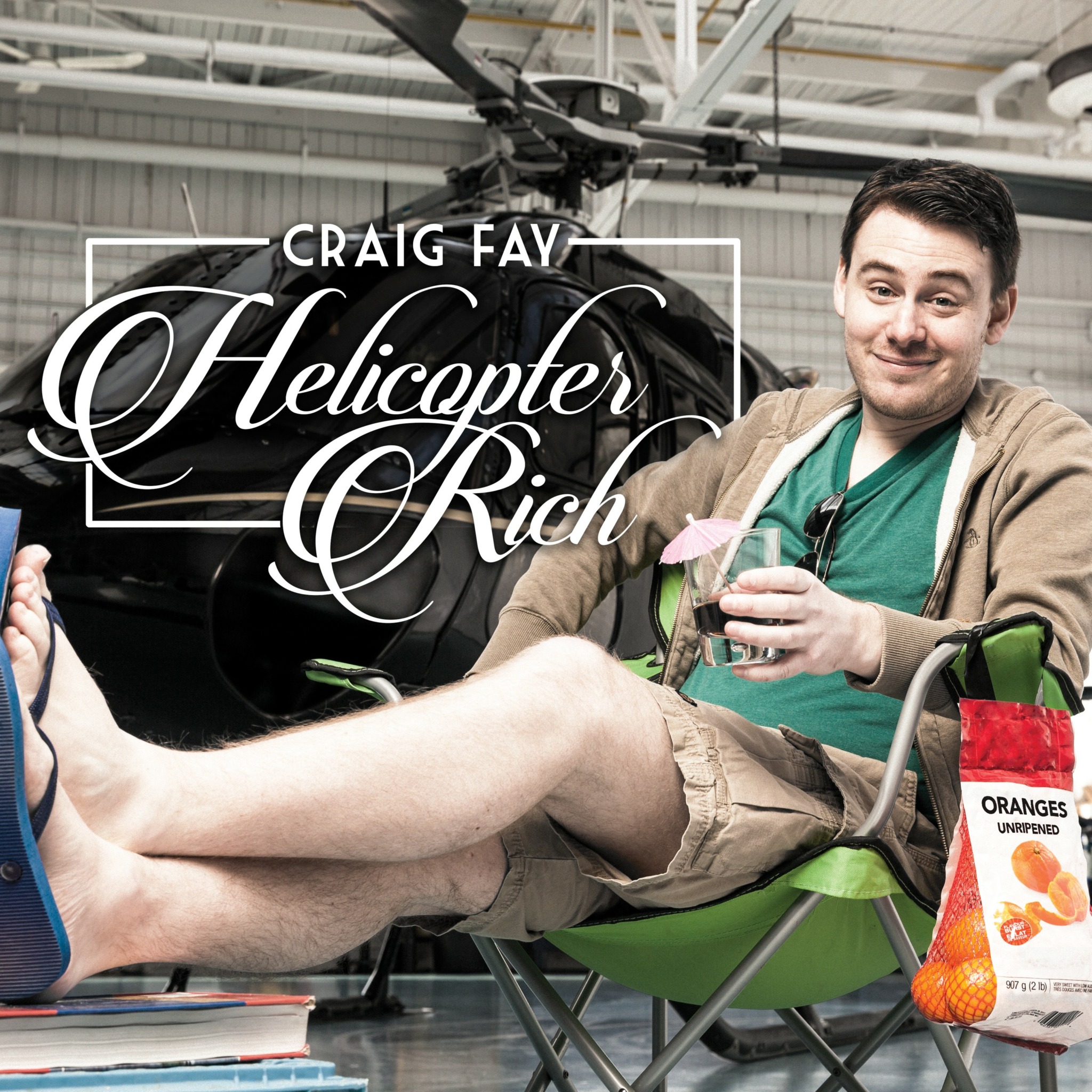
Craig, love having you share your insights with us. Before we ask you more questions, maybe you can take a moment to introduce yourself to our readers who might have missed our earlier conversations?
My name is Craig Fay. I’m a stand-up comedian and podcaster based in Toronto, ON Canada. I worked as an engineer up until 2018 when I quit my day job and was able to make the leap to doing comedy full time.
As a stand-up I have appeared on CBC television as part of the Winnipeg Comedy Festival’s “Technology Gala” and have performed at the world famous Just For Laughs Festival in Montreal.
My debut comedy album “Helicopter Rich” was praised as “observational and self-reflective…worth playing multiple times over” (Exclaim) with my sophomore release “Performance Review” being selected as one of the best comedy albums of 2022 by Paste Magazine.
I am currently preparing to record my first full stand-up special sometime in 2025, so stay tuned to my socials for more information on that.
I pride myself on creating thoughtful, intelligent and occasionally absurd humour that you won’t see from anyone else. In recent years my comedy has examined how we choose to live our lives and how technology intersects and influences that.
As a podcaster I am the co-host of the Villain Was Right podcast along with fellow comedian Rebecca Reeds. Every week we do as the name suggests and look at a movie or TV show from the villain’s perspective and attempt to argue on their behalf. The show launched on the “From Superheroes Network” in 2018 earning “Outstanding Debut for a Series” at the Canadian Podcast Awards and went on to win “Outstanding Comedy Series” the following year. The Villain Was Right currently has over a million downloads and a dedicated fan base who support the show on Patreon.
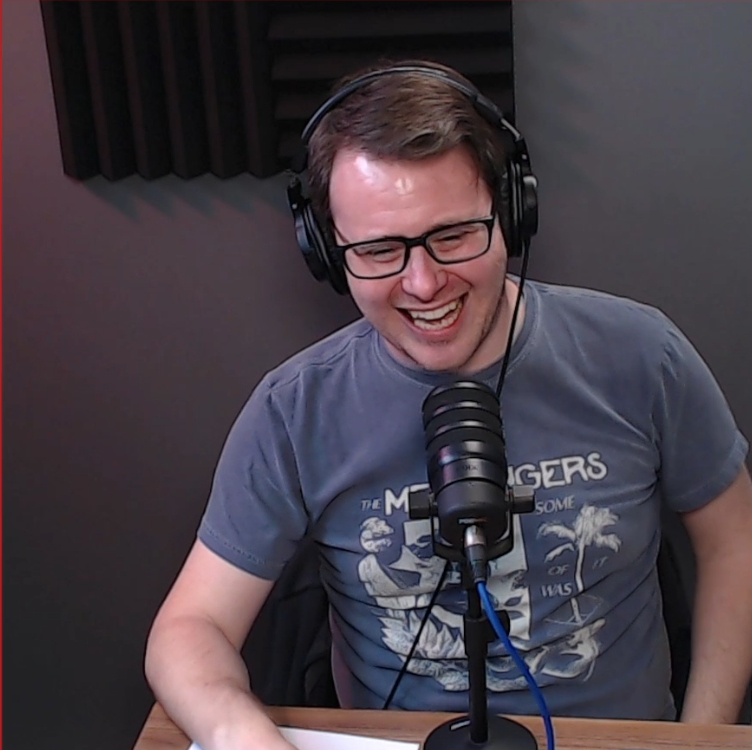
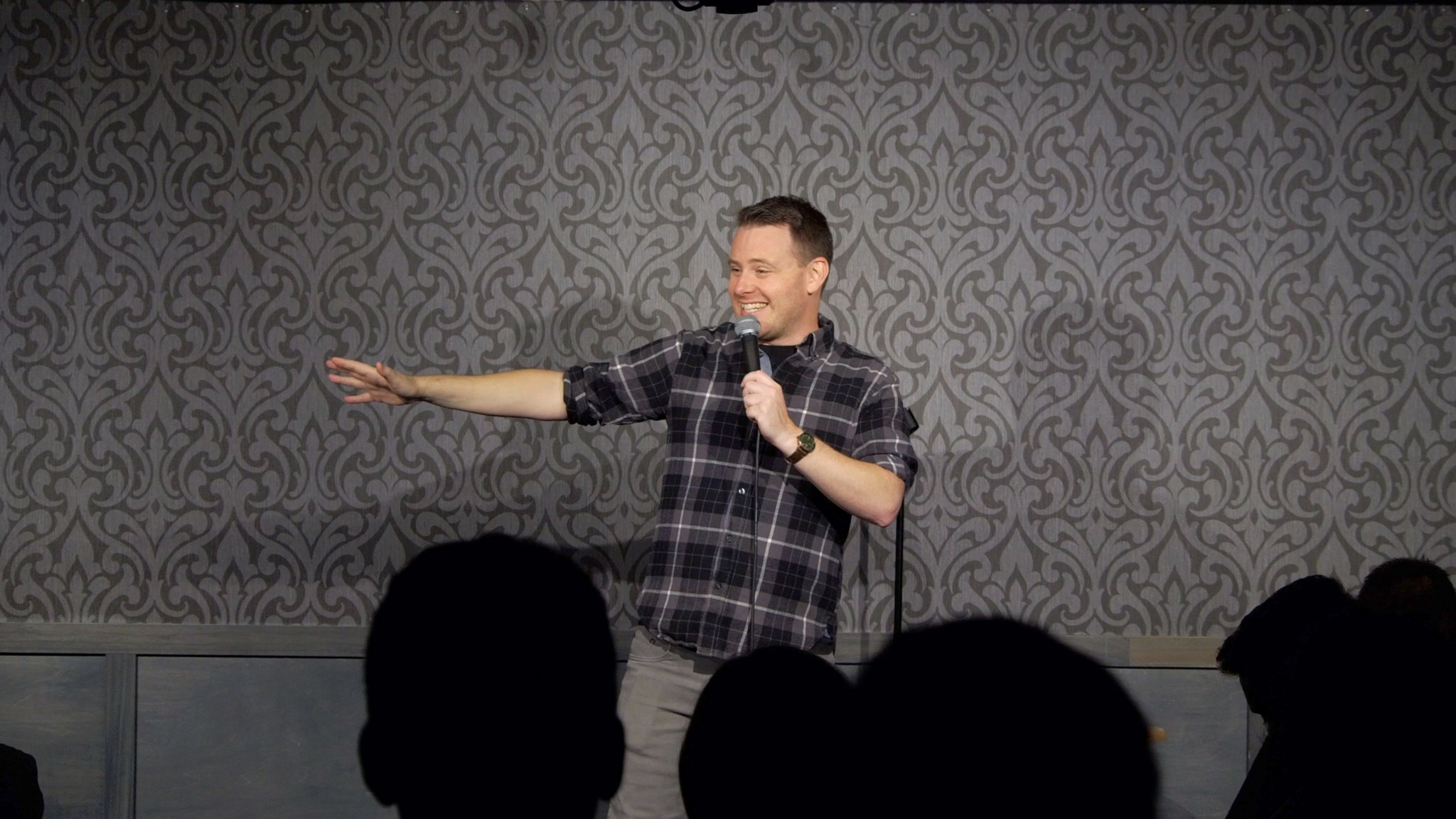
How can we best help foster a strong, supportive environment for artists and creatives?
This may sound simplistic but…pay them. Pay the artists. Realize that the artists, musicians, comedians, whatever are the ones actually producing the valuable things and pay them for it. Because right now there seems to be a consistent effort to abstract creative people’s ability to make a living off their art.
I got serious about performing stand-up around 2007 and so my career has more-or-less spanned the rise of social media. I’ve seen it transform from something that allowed you to share photos with people you actually knew in real life (Facebook) to a model where users are generating ‘content’ for strangers (TikTok). What started as a way to direct people to work or websites you could make money off of transformed into a system where you have to provide work for free in exchange for followers.
You used to be able to sell physical music or comedy albums after shows or sell a digital album over iTunes and get a majority of that income. Then there was the transition to streaming with things like Spotify and Apple Music where artists get paid pennies per stream on something they used to be able to sell. The advertised trade-off is that these platforms will help you grow your audience.
At some point big tech companies realized that it was super easy and profitable to sell art they hadn’t made and so created ‘platforms’ that make money off of content, provided for free or cheap, that artists used to be able to charge for.
Sure there have been people who have become successful through social media. People who have been able to convert those ‘follower’ numbers into attendance at live shows, or merchandise sales but the fact remains: they are doing the art for free and having to make the money off of tangentially related endeavours. And chances are there is someone taking a cut off those things as well.
Selling your art has become a longer and longer stream of inefficient conversions. You trade social media clips for SOME followers which maybe you trade for SOME podcast listeners which you trade for SOME tickets to your live show which you can finally trade for SOME cash. Each step requiring time and effort and yielding continually diminishing returns.
Every passing year requires artists to acquire and master new skills that stray further and further from what they’re actually good at. If you want to be a stand-up comedian in 2025, it requires you not just to write and perform jokes but to be a videographer, video editor, audio engineer, social media manager, podcaster, web-designer, graphic designer, booker, agent etc. etc.
It’s just a stupidly, ever expanding, cone of responsibilities that is wholly unsustainable and puts more distance between doing art and making a living.
Stop creating ‘solutions’ that reward artists with ‘followers’ ‘audience’ or ‘exposure’. It’s a cliche but one worth repeating – people die from exposure.
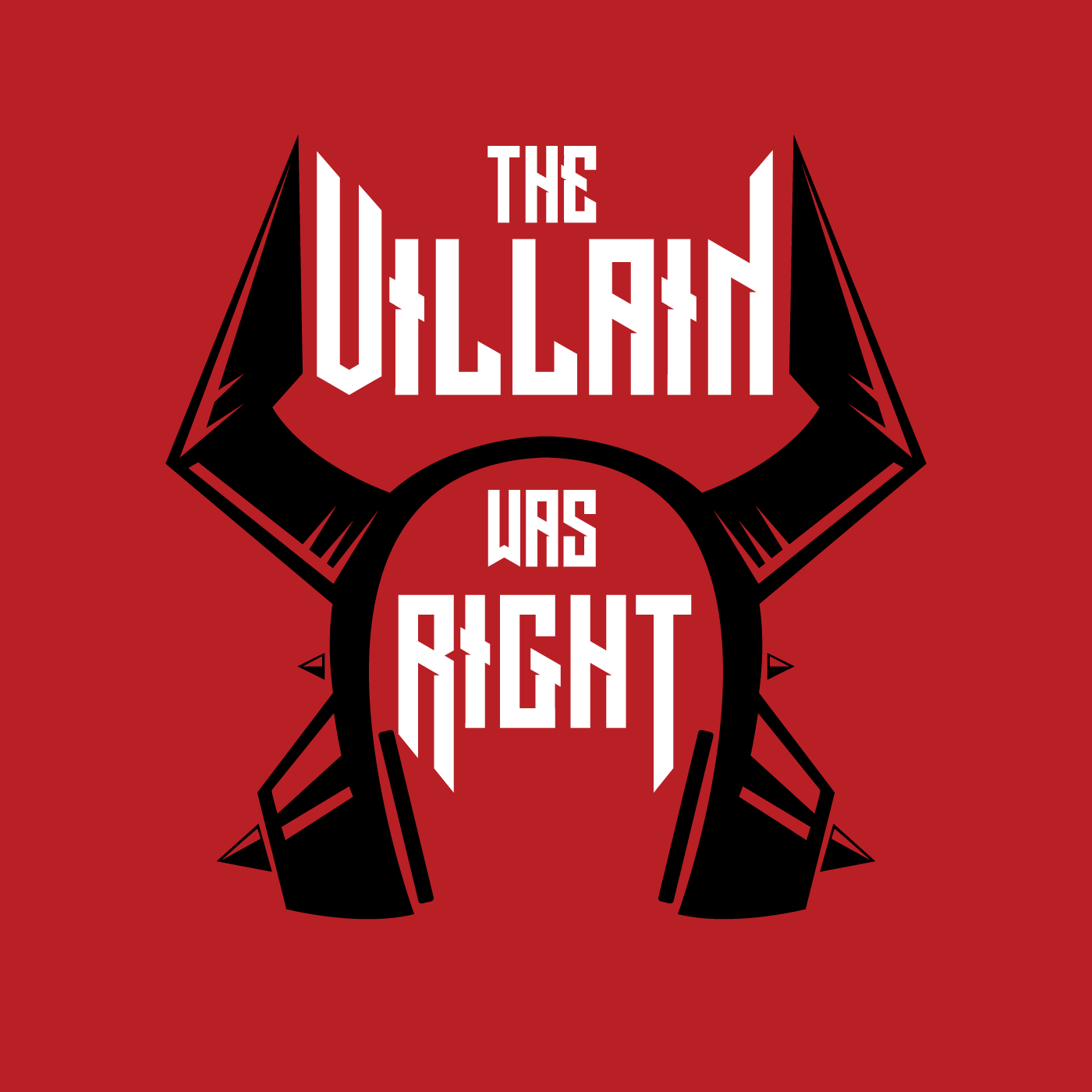

Is there a particular goal or mission driving your creative journey?
I want my comedy to be intelligent, thoughtful, and to have some depth to it – either in subject matter or execution. At the same time I want it to be about stuff that interests me. In that sense it’s a bit of a ‘chicken or the egg’ situation: the ideas that tend to interest me have depth and complexity and so can’t really be talked about or joked about without some depth and complexity.
Putting it like that sounds a little pretentious but it really it boils down to the goal all stand-ups (should) have: to be honest and to show the audience who you are.
One very consistent goal through my whole career has been to try and be different from what others were doing.
When I first started I was on shows with lots of other amateur comedians – almost all of whom were doing ‘shock’ humour, where they would say the most vile and offensive things possible to get a laugh. That can be effective when done well and in small doses but again, EVERYONE was doing it and we were all very new and very bad. It became an endless parade of comedians trying to ‘out-gross’ each other and it got boring really quickly.
That’s when it occurred to me that going in the totally opposite direction with my material would be a good way to stand out, so I artificially handicapped myself.
I told myself that I wouldn’t write any jokes about sex, drugs, or alcohol and completely removed swear words. I didn’t even allow myself to use ‘heck’ or ‘damn’. Again, not out of any moral objection but more as a challenge to set myself apart. And it worked.
Having to learn to write around those artificial obstacles made me a better writer in the long-term (even though I have long abandoned those rules).
Contact Info:
- Website: https://www.craigfay.com
- Instagram: https://www.instagram.com/craigfaycomedy/
- Facebook: https://www.facebook.com/CraigFayComedy
- Youtube: https://www.youtube.com/CraigFayComedy
- Other: TikTok @CraigFayComedy
Spotify: https://open.spotify.com/artist/3M6yeIZPGgSVxjc4id7Sck?si=chb_7lGDSwucj6H7jaaw6g

